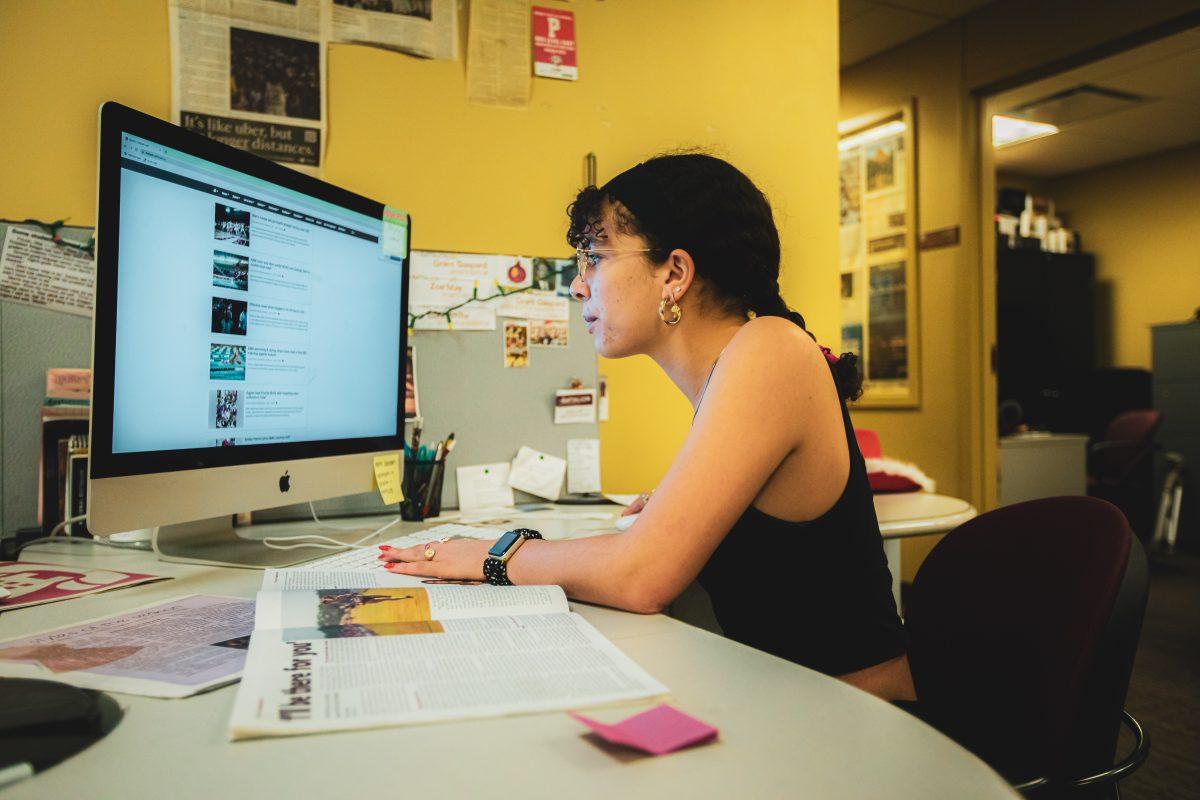When I was 13 years old, I first considered the idea of being a journalist. I was an avid book reader who believed that I could write narratives and build worlds that would help people escape their reality. I wanted to be an author. So badly did I want to find my name among the ranks of Suzanne Collins, Sarah J. Maas and Rick Riordan alongside all the other notable authors who had influenced my childhood so deeply.
However, my mother, always the loving realist, explained the hardships that come with a life tied to the fight to get published and suggested the next best thing: journalism. Still, a life of writing for the enjoyment of others and I could still make an impact on those who need an escape. So I signed up for my high school’s journalism class and as my toes dipped into the editorial, I slipped and allowed myself to be consumed by the world of journalism.
I spent my free time reading article after article, I learned about all the different editorial styles and avenues and before I knew it I was in the depths and I loved it. I joined the high school newspaper and worked to climb the ranks to editor-in-chief. And as I sat atop my first flight of stairs on the climb to my dreams, I heard the first creak in the step.
“But you’re so smart?”
I was a senior in high school when these words were first uttered to me, by a teacher no less, when they asked what I was considering going to school for. I remember being confused myself, I didn’t see where they saw the disconnect. I had sat through years of editorial training and I knew it was not the type of skill one just does. So, how did choosing to major in journalism have any correlation with a lack of intelligence? But all I did was smile and shrug, adding the first straw to my saddle.
Then the wood splintered — “But you’re so good at math?”
Yes, I got high A’s in most of my high school math courses. Yes, I was able to solve complex equations without breaking a sweat. No, I did not want to pursue any field of math. My whole life I was pushed to excel in math and science courses to one day be able to “balance” out the STEM careers. So, I did, I worked and studied hard to do well in those classes, but ultimately I held no affection for numbers and equations. And that should be fine. I wanted to ask, “Why should I be responsible for the gender imbalance in STEM career fields?” “Why do I have to sacrifice my passions?” But all I did was smile and shrug, adding another straw to my saddle.
Then the stairs beneath my feet fell apart.
“You’re taking the easy way out.”
A friend, a fellow woman, spoke these words to my face and laughed when I became upset, like what she said was fact and I had no right to dispute it. My frustration, which I had put on the back burner and left to simmer, came to a boil. It was like my decision not to be an engineer, a doctor or a scientist had revoked my ability to consider myself a feminist. My career path and I had to be “breaking boundaries” for us to have any worth.
So I grimaced and left, saddle broken, eager to prove everyone wrong. To prove that a pencil can be mightier than a scalpel. That I can inspire young girls to pursue their dreams no matter the obstacle with words instead of numbers. That despite what the school system may tell you, your jobis to do what you love — not what others would love for you.
I continued my path, choosing to attend Texas A&M to pursue a degree in journalism. Continuing to endure the eye rolls, laughter and scoffs from those around me who hear the words “communication” or “journalism” and write me off. Go ahead, write us off.
We look at a dying industry right in the eyes and challenge it to a duel. We foster a belief that we alone will somehow revive an entire career. We listen to the quiet scoffs whenever someone hears our choice and simply smile and turn the other cheek. And yet, we persist.
We write.
We learn.
We investigate.
We speak.
We fight.
We love.
Because that’s the heart of it, we don’t join this profession because it is comfortable. We join it because we love it and we want to make a difference, to be the change. We make one of the hardest decisions there is, to follow your heart instead of your head.
So, tell me, really, how can that possibly be an easy way out?
Zoe May is a journalism sophomore and sports editor for The Battalion.










